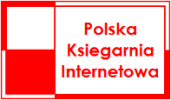Niedostepny
Ostatnio widziany
3.02.2025
|
Dostawa do UK zawsze tylko £1.90! (Sprawdź!)
The book focuses on humanistic aspects of contemporary management, generating win-win-win opportunities for companies, their employees and societies the companies operate in. Corporate volunteering is one of the ways to navigate for sustainable future in the unpredictable world in which various forces such as global pandemics, wars, unsustainable business practices, and uncertainty play a major role. Corporate volunteering refers to employees’ engagement in company-sponsored volunteering activities, i.e. giving employee time, knowledge, or skills without additional compensation or remuneration, during a planned activity encouraged and supported by a company, in favor of external beneficiaries. Together with donations, strategic philanthropy and community-driven development, corporate volunteering is regarded among modes through which companies support communities with financial or material resources and human skills.
The aim of the book is to map the thematic coverage and intellectual structure in research on corporate volunteering in order to identify leading research streams in the field. To achieve the aim of the study, the combination of research methods was employed, including science mapping methods (i.e. co-word analysis, bibliographic coupling, and direct citation analysis) and a systematic literature review. Mapping of the research field conceptual and intellectual structures provides valuable contribution for all researchers interested in theory and practice of corporate volunteering. A comprehensive map of the field is to allow them to navigate more consciously through a variety of themes, topics and core publications, and their mutual relationships, delivering guidelines to follow one of leading streams of research or to discover a research gap.
Książka Corporate Volunteering Mapping the Conceptual and Intellectual Structure of the Research Field - wysyłka UK tylko £1.90.
Irlandia i inne kraje - sprawdź informacja na stronie "dostawa".
Skip to similar books
Skip to product details
Dane bibliograficzne / Bibliographic info
|
Rodzaj (nośnik) / Type of product
|
książka / book
|
|
Dział / Department
|
Książki i czasopisma / Books and periodicals
|
|
Autor / Author
|
Andrzej Lis
,
Aldona Glińska-Neweś
,
Akram Hatami
,
Jan Hermes
|
|
Tytuł / Title
|
Corporate Volunteering Mapping the Conceptual and Intellectual Structure of the Research Field
|
|
Język / Language
|
angielski
|
|
Wydawca / Publisher
|
Wydawnictwo Naukowe UMK
|
|
Rok wydania / Published in year
|
2024
|
|
Rodzaj oprawy / Binding type
|
Miękka
|
|
Liczba stron / Number of pages
|
102
|
|
Ciężar / Weight
|
0,17 kg
|
| |
|
|
Wydano / Published on
|
15.02.2024
|
|
ISBN
|
9788323149989 (9788323149989)
|
|
EAN/UPC
|
9788323149989
|
|
Stan produktu / Condition
|
nowy / new - sprzedajemy wyłącznie nowe nieużywane produkty
|
|
Osoba Odpowiedzialna / Responsible Person
|
Osoba Odpowiedzialna / Responsible Person
|
 Szybka wysyłka
Szybka wysyłka









